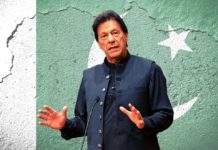Disclaimer: The Eqbal Ahmad Centre for Public Education (EACPE) encourages critical and independent thinking and believes in a free expression of one’s opinion. However, the views expressed in contributed articles are solely those of their respective authors and do not necessarily reflect the position or policy of the EACPE.
Mass media joined the 21st century in power games and found itself in a paradox of its own power. We seem to have more details and more powerful journalism, across an unmatched variety of media, than at any other time since the beginning of the free media. Yet, ironically, journalism is also under unmatched assault, from public figures, philosophers, experts, community, anti-globalization groups, spiritual figures and even from media-men themselves.
The first level of the paradox, the ascendency of journalism, is quickly described. Its actual cause is the development in the social, cultural, political and financial value of information, triggered by the appearance of new, inexpensive digital technology spreading and showing details and the market of analysis. It is now commonly recognized that without numerous and available sources of media at our disposal, we can have neither the democracy in which we believe nor the financial development and customer choice which we wish to have in contemporary mass society. Electronic media added a new colour to this information age. It has brought the whole world closer to our private lives. Opinion leaders have supplanted our own thinking habits to judge, analyse, peruse and evaluate any information beamed in from remote places through television screens. Anchorpersons have assigned the task of inculcating collective thinking to themselves on self-made public behalf without possessing brains and outsourced parts of their assignments to war-hysteric, lunatic, jingoistic security analysts like Zaid Hamid, Orya Maqbool Jan and their likes. Exceptions are there, but in the support of this general rule.
Edward Murray, a great television broadcaster, rightly and brilliantly observed in 1950’s, ‘We have currently a built-in allergy to unpleasant or disturbing information. Our mass media reflect this. But unless we get up off our fat surpluses and recognize that television in the main is being used to distract, delude, amuse, and insulate us, then television and those who finance it, those who look at it, and those who work at it, may see a totally different picture too late.’ Information, which was once challenging and costly to acquire, these days encompasses us like the air we breathe in. Much of it is basically ambient in its manifestation: shown on computer systems, community advertisements, television screen and cell phones. Where once news had to be desired out in costly fashion in contemporary times, it has become free at the point of intake like polluted air. Where once journalism’s arrival was limited by the time it took to transport many of paper from one end of a state to the other; now it has become international, immediate, insulating and entertaining.
However, there are many problems associated with this new, emerging culture within mediatised-panic society of Pakistan. Because there is so much flow of information nowadays, there is a difficulty to sift the good from the bad, the real from the fabricated, the rational from the sensational and the analytical from the polemical. The fact that it is mostly accessible without direct payment may mean that we value it less nowadays as cheap cable networks have invested their money into this infotainment venture. The addition of suffix ‘-gate’ with every scandal itself shows that there is a lack of seriousness on the part of media to present public issues in a balanced way. Dr. Mohammad Waseem, a professor at LUMS, wrote about this prevalent media trend as ‘TV talk shows are amazingly popular, especially as they compete with plays at prime time. The confrontationist posturing of the holders of opposite views belonging to different persuasions adds a lot of spice to these shows. Controversy and confusion, sometimes deliberately conjured up by TV anchors, lead to a cyclical logic. Indeed, confrontation is understood as entertainment.’
What is needed for society is to treat media just as an information-gathering system of modern times and shun the moral, panic and populist designs of media’s framework.
Today’s current television reporters capture images in wasteland war-zones and stream them via satellite television for all over the globe. These experiences get more popularity if the news injections are exciting. For news, attack is suitable, death is advantageous. It is more profitable if reporter or correspondent is young, extravagant, and famous. Less alarmist, but more important social and political issues about education, social welfare, health and community interaction at domestic level get less coverage until they bring more profit to the media owners. The conditions of modern information systems test the journalist’s reasoning and loyalty, not in generally new ways, but more consistently and at greater speed than ever before. If the correspondent is confidentially the tool of some unseen advertising machine or vested commercial interests, it is the community at large whose attention is tricked.
In the political realm, democracy itself is in danger in this world of high-speed, always-on information. Media correspondents articulate rapid decisions upon the people in politics; they often outperform in popularity, and resultantly, politicians in Pakistan feel themselves decreased to side-attractions in the great non-stop media-induced melodramas. Dr. Mohammad Waseem observed that ‘The anchorperson is a new addition in the political lexicon of the informed public. A majority of anchorpersons provide a ‘rightist’ perspective on things. Some whip up xenophobic feelings and conspiracy theories. As initiators of discussion and regulators of screen time, they tend to shape the dialogue along a chartered path.’
What is needed for society is to treat media just as an information-gathering system of modern times and shun the moral, panic and populist designs of media’s framework. It harms social integrity and virtually heralds the decline of society. For politicians, it has become necessary to upright their way of behaving in public arena and field articulate candidates on TV screens to shut spineless anchors up. For the civil society, it is vital to forge organic links within liberal and secular sections of society in order to present a coherent force in the face of right-wing discourses prevalent in media. For judiciary, it is essential to keep itself to black letter laws than intruding in public realm through media screens. Last but not the least, media owners must shun the conflictual framework which is harming the institutional balance in this fragile democratic order and present policy-oriented alternatives to make Pakistan a progressive and flexible state in this era of globalization. Small measures can lead to big changes; otherwise television screens will remain mere illuminating wires and lights and newspapers will remain papers bloated with printing inks forming fat surpluses around our mindsets, and in the end we will find that whole struggle for democracy and progress is lost for good. It is better to think now than never!
A contributed article by Hammad Raza









